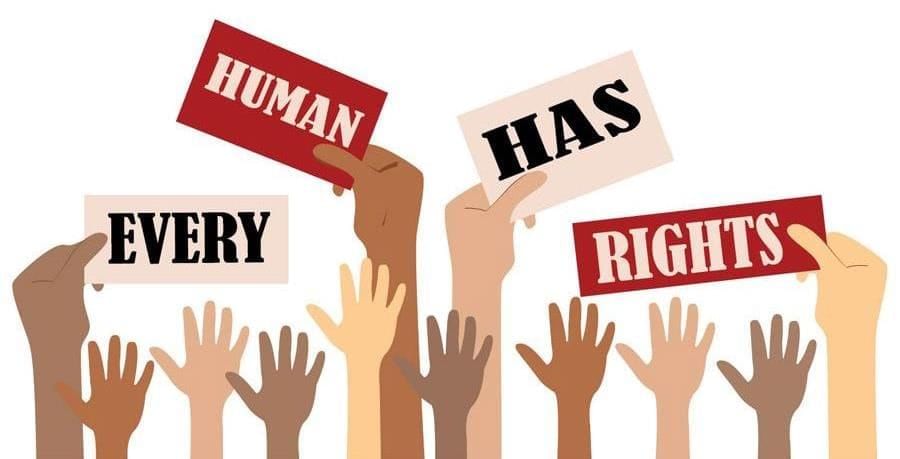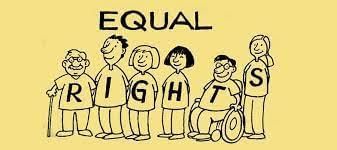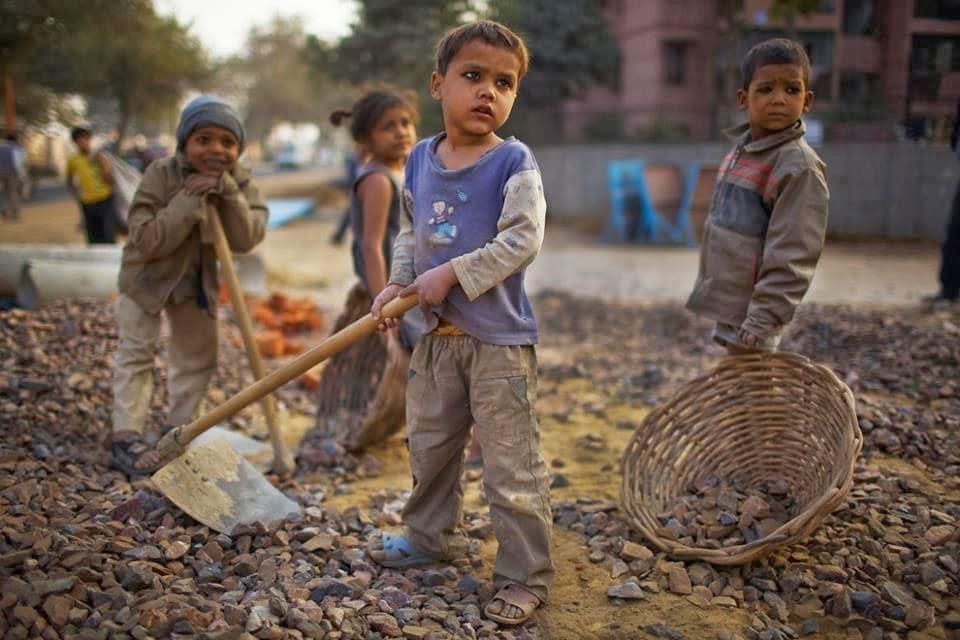Humanities/Arts Exam > Humanities/Arts Notes > Political Science Class 11 > NCERT Summary: Rights in the Indian Constitution-1
NCERT Summary: Rights in the Indian Constitution-1 | Political Science Class 11 - Humanities/Arts PDF Download
| Table of contents |

|
| The Importance of Rights |

|
| Fundamental Rights in the Indian Constitution |

|
| Right to Equality |

|
| Right to Freedom |

|
| Right against Exploitation |

|
The Importance of Rights
- Rights are crucial in a democracy to protect individuals from exploitation and ensure the government recognizes and implements them effectively.

- Example 1: Asian Games Construction Workers (1982) – Contractors employed poor migrant workers in harsh conditions and paid below minimum wages; social scientists petitioned the Supreme Court, arguing it violated the Fundamental Right against exploitation (begar or forced labor); the Court agreed and ordered payment of prescribed wages to thousands of workers.
- Example 2: Machal Lalung Case (1960s–2000) – Arrested at 23 in Assam for grievous injury, was mentally unfit for trial and sent to a mental hospital; despite fitness certifications in 1967 and 1996, remained in custody for 54 years without a hearing; released at 77 after NHRC intervention, highlighting violation of the right to life and liberty, which includes fair and speedy trials.
- These cases show that without practical enforcement, constitutional rights fail, wasting lives and denying justice.
- In the workers' case, the court challenge succeeded due to constitutional guarantees; in Machal's, neglect prevailed until external intervention.
Bill of Rights
- In a democracy, governments must guarantee certain individual rights and always recognize them.
- Common practice in most democratic countries: List citizen rights directly in the constitution for protection.
- Such a list—mentioned and safeguarded by the constitution—is called the "Bill of Rights".
- A Bill of Rights prohibits the government from infringing on individual rights and provides remedies for violations.
- Protection scope: The Constitution safeguards individual rights from threats by:
Other persons or private organisations (the government must intervene and protect).
Government organs (legislature, executive, bureaucracy, and even judiciary) may violate rights during operations.
Fundamental Rights in the Indian Constitution
- During the freedom struggle, leaders realized the importance of rights and demanded that British rulers respect people's rights.
- Motilal Nehru Committee demanded a Bill of Rights as early as 1928.
- Post-independence, when preparing the Constitution, unanimous agreement on including and protecting rights; listed specially protected ones as "fundamental rights".
- "Fundamental" indicates extreme importance: The Constitution separately lists them with special protection provisions.
- The Constitution ensures the government cannot violate them.
- Differences from ordinary rights:
1. Ordinary legal rights: Protected/enforced by ordinary law; the legislature can change them via normal law-making.
2. Fundamental Rights: Protected/guaranteed by the Constitution; changeable only by constitutional amendment.
3. No government organ (executive, legislature, judiciary) can violate them.
- Judiciary's role: Powers/responsibility to protect FRs from government violations; declares executive/legislative actions illegal if they breach FRs or impose unreasonable restrictions.
- FRs not absolute/unlimited: Government can impose reasonable restrictions on their exercise.
Bill of Rights in the South African Constitution:
- Inaugurated in December 1996, amid a civil war threat post-Apartheid dissolution.
- Bill is described as "the cornerstone of democracy" in South Africa.
- Forbids discrimination on: Race, gender, pregnancy, marital status, ethnic/social origin, colour, age, disability, religion, conscience, belief, culture, language, birth.
- Grants most extensive citizen rights; enforced by a special Constitutional Court.
- Rights in South Africa include:
1. Right to Dignity
2. Privacy
3. Fair Labour Practices
4. Healthy Environment/Protection
5. Adequate Housing,
6. Others: Health Care/Food/Water/Social Security, Children's Rights, Basic/Higher Education, Cultural/Religious/Linguistic Communities, Information.
Right to Equality
- Essential to eliminate discrimination; ensures equal access to public places (shops, hotels, entertainment, wells, ghats, worship) without bias on religion, race, caste, sex, or birthplace.
- Prohibits employment discrimination on the above grounds; provides equal opportunity in public jobs.
- Abolishes untouchability (crudest inequality manifestation); no titles except military/academic excellence.
- Scenarios: Shopkeeper serves Dalit friend tea in an earthen cup, upper-caste in a mug—caste violation; women newsreaders over 45 dismissed, men not—gender violation; both unjustified.

- Preamble: Equality of status and opportunity; reservations for children, women, backward classes improve conditions without violating equality (Article 16(4)).
- You Are the Judge: Odisha Dalit case—women beaten/paraded for refusing caste customs (washing feet, clearing leftovers); violates equality, dignity (Article 21), exploitation (Article 23); order government: Prosecute, compensate, educate/enforce laws.
Right to Freedom
- Paired with equality as democracy's pillars, liberty means thought/expression/action freedom, but not unlimited to avoid harming others or order.
- Defined to balance individual freedoms with societal peace.

Right to Life and Personal Liberty
- Article 21: No denial except by law procedure; includes human dignity, free from exploitation; expanded by SC to shelter, livelihood (essential for living).
- Arrest: Must inform grounds, allow lawyer, produce before a magistrate within 24 hours for justification.
Preventive Detention
- Arrest without offense if apprehended for unlawful activity threat; for law/order/security; max 3 months, then advisory board review.
- Effective against anti-socials but misused; tension with Article 21—needs more safeguards.
Other Freedoms
- Article 19: Speech/expression (restricted for order, peace, morality); peaceful assembly without arms (restrictions in areas); form associations/unions; free movement/residence; profession/occupation/trade/business.
- Restrictions misuse risk (e.g., denying protests); Constituent Assembly dissatisfaction noted; citizen vigilance prevents abuse.
Rights of Accused
- Article 20: No double punishment for the same offense; no retroactive criminal laws; no self-incrimination.
- Ensures fair trial opportunity; presumption of innocence until court guilty.
Right against Exploitation

- In India, millions of underprivileged and deprived people face potential exploitation by other human beings.
- One major historical form: Begar or forced labour without payment.
- Closely related: Buying and selling of human beings and using them as slaves.
- Both forms are explicitly prohibited under the Constitution.
- Past context: Forced labor imposed by landlords, moneylenders, and other wealthy persons.
- Present issue: Some bonded labour persists, especially in brick kiln work, now declared a crime and punishable.
- Additional prohibition: Employment of children below 14 years in dangerous jobs like factories and mines.
- Enhanced significance: With child labour made illegal and the right to education as a Fundamental Right for children, this right against exploitation has become more meaningful.
For continuation of the NCERT Summary, open NCERT Summary: Rights in the Indian Constitution-2
The document NCERT Summary: Rights in the Indian Constitution-1 | Political Science Class 11 - Humanities/Arts is a part of the Humanities/Arts Course Political Science Class 11.
All you need of Humanities/Arts at this link: Humanities/Arts
|
44 videos|392 docs|50 tests
|
FAQs on NCERT Summary: Rights in the Indian Constitution-1 - Political Science Class 11 - Humanities/Arts
| 1. What are the fundamental rights enshrined in the Indian Constitution? |  |
Ans. The fundamental rights in the Indian Constitution include the Right to Equality, Right to Freedom, Right against Exploitation, Right to Freedom of Religion, Cultural and Educational Rights, and the Right to Constitutional Remedies. These rights are essential for ensuring individual liberty and equality before the law.
| 2. How does the Right to Equality impact the citizens of India? |  |
Ans. The Right to Equality guarantees that all individuals are treated equally before the law and prohibits discrimination on the grounds of religion, race, caste, sex, or place of birth. This right promotes social justice and aims to eliminate inequalities in society, ensuring that every citizen has equal access to opportunities and resources.
| 3. What is the significance of the Right to Freedom in the Indian Constitution? |  |
Ans. The Right to Freedom encompasses various freedoms such as the freedom of speech and expression, assembly, association, movement, residence, and profession. This right is crucial for the functioning of a democratic society as it allows individuals to express their opinions, participate in public life, and pursue their own interests without undue interference from the state.
| 4. What protections are provided under the Right against Exploitation? |  |
Ans. The Right against Exploitation prohibits human trafficking, forced labor, and child labor. It ensures that individuals are protected from exploitation and are not subjected to inhumane working conditions. This right is fundamental in safeguarding the dignity and rights of vulnerable groups in society.
| 5. How do the Directive Principles of State Policy complement the Fundamental Rights in the Indian Constitution? |  |
Ans. The Directive Principles of State Policy serve as guidelines for the state to ensure social and economic justice. While Fundamental Rights focus on individual liberties and rights, the Directive Principles aim to create a welfare state by promoting the common good. Together, they ensure a balanced approach to governance that respects individual rights while striving for the overall development of society.
Related Searches














